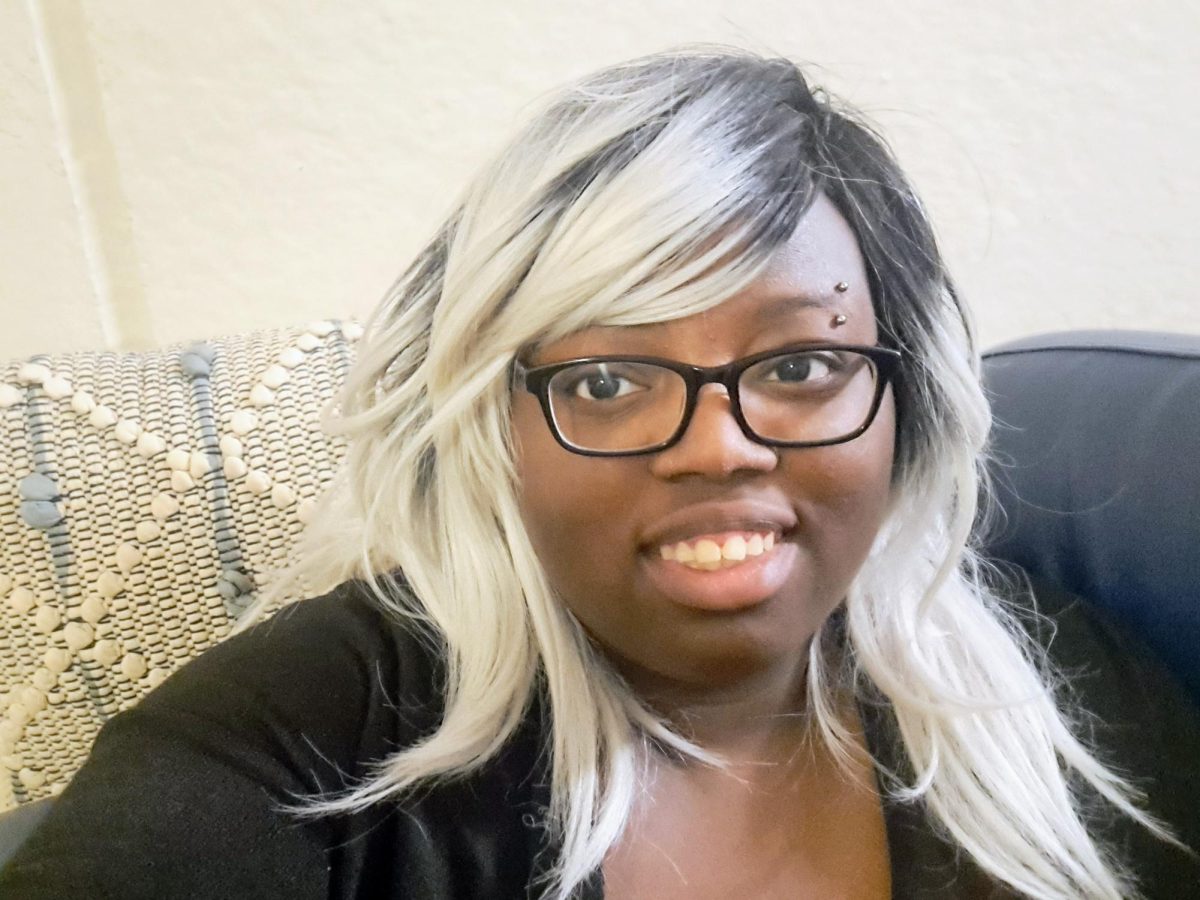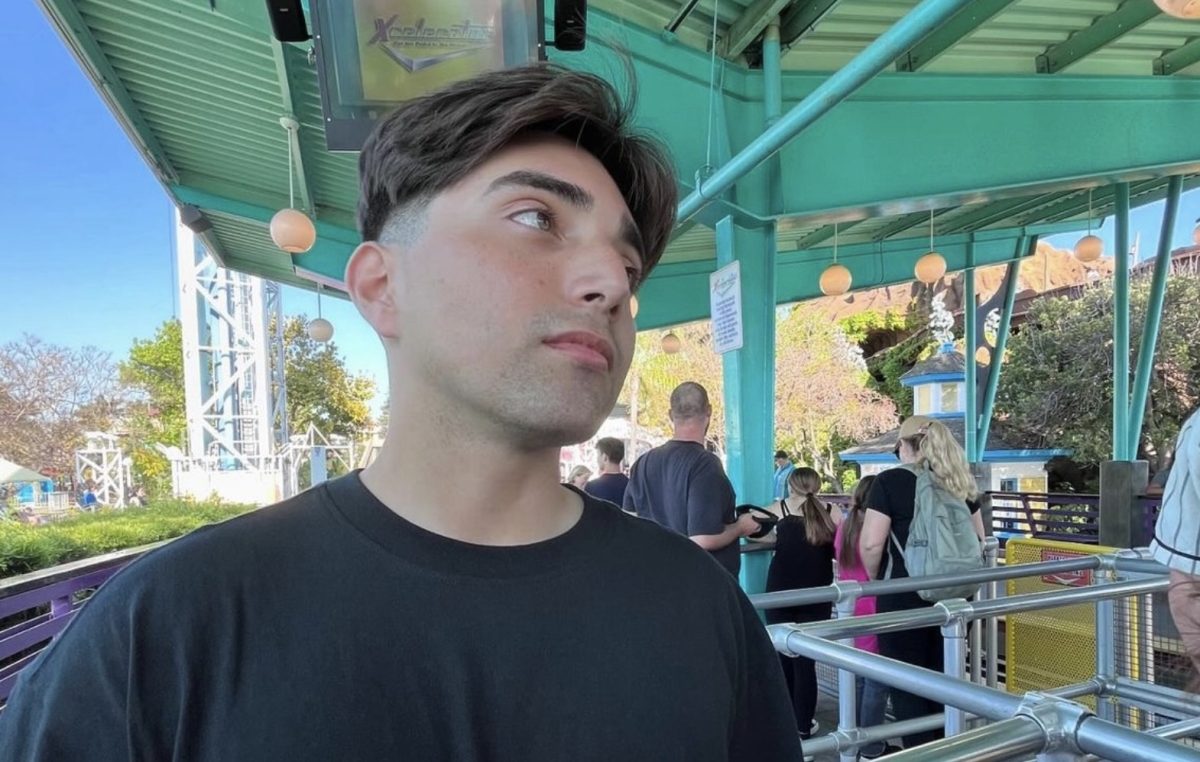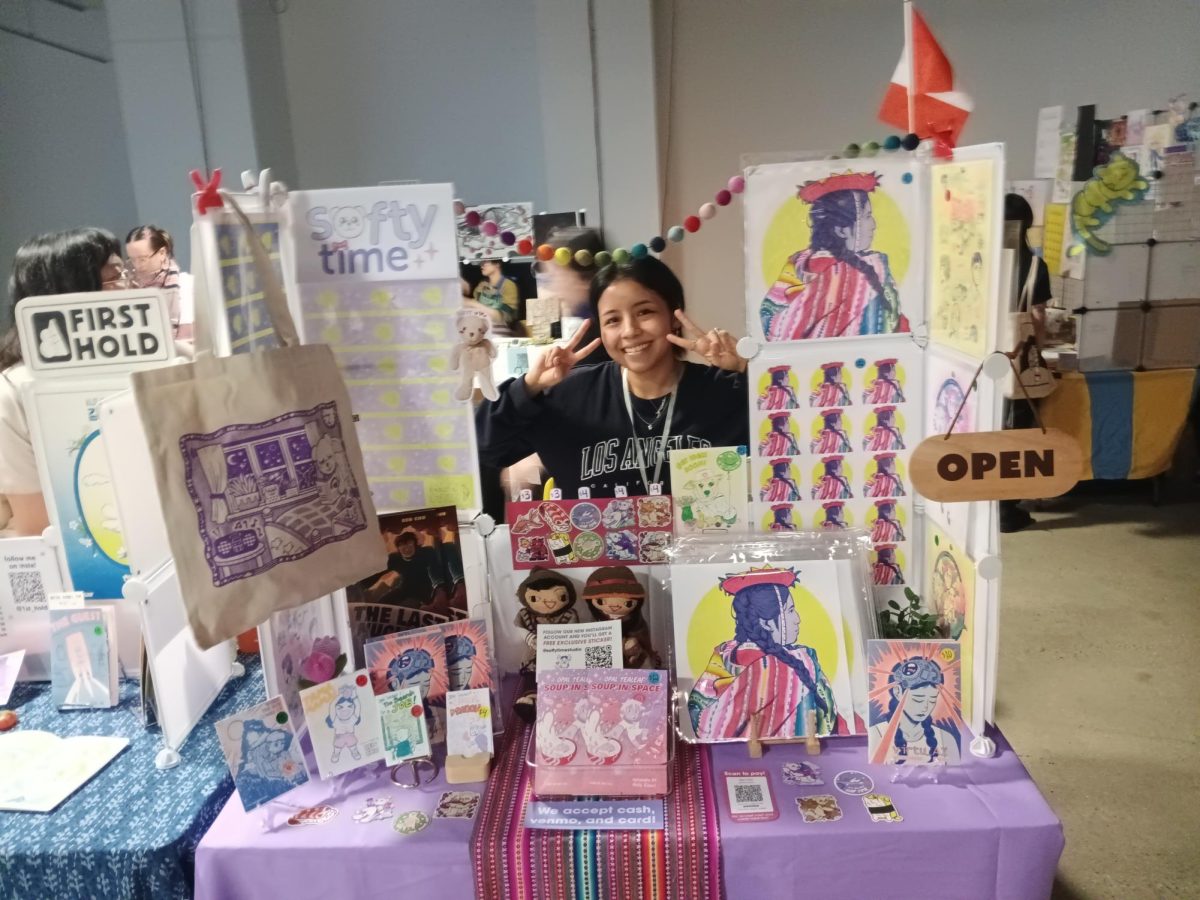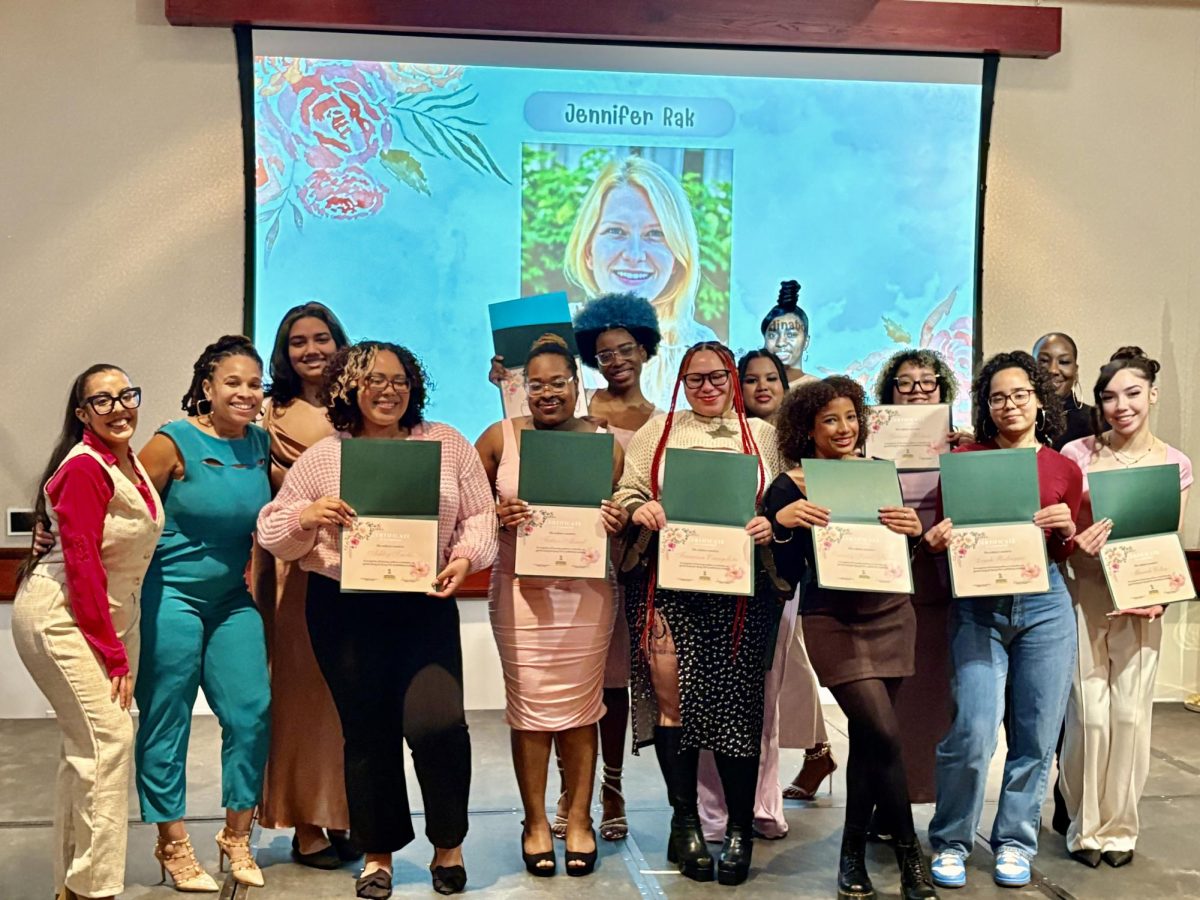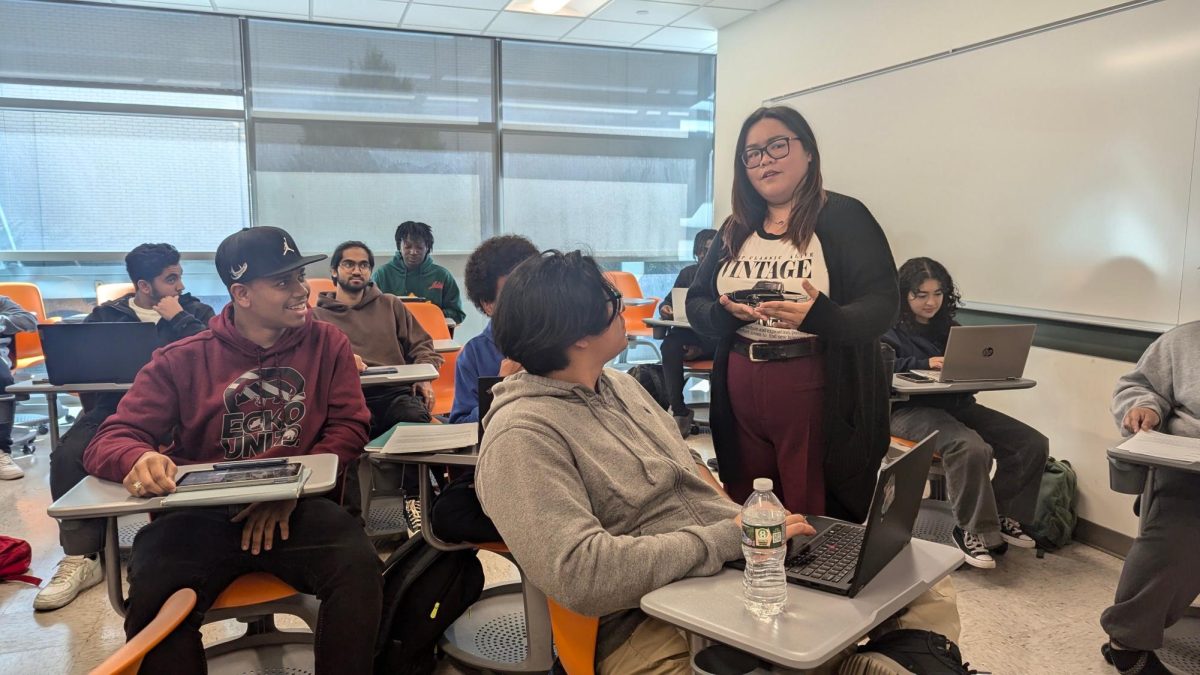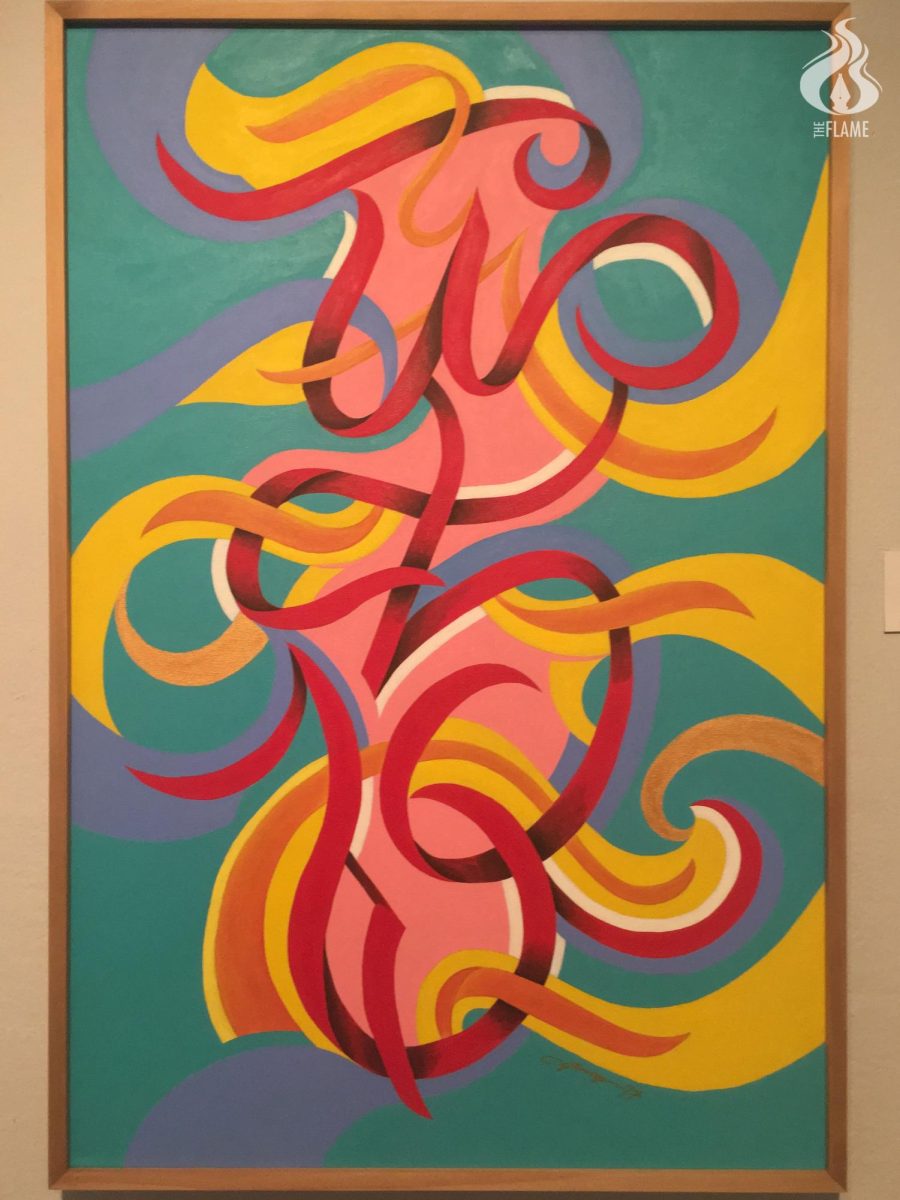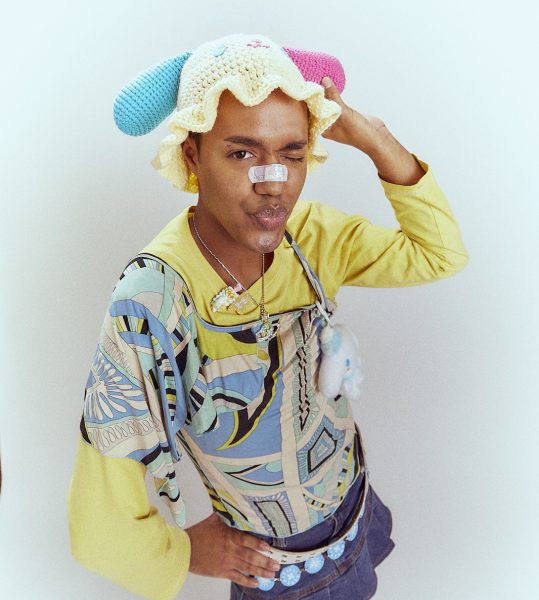Tia Warren is the current reigning editor-in-chief of the Gothic Times. She is the backbone and the guide of the newspaper’s direction, political views, commentary, design, spotlight, and much more. She truly has left her mark on the platform. With the spring semester being her last and her graduation day inching closer and closer, I decided it was important to discuss Tia’s journey with the Gothic Times, and what has brought her and the newspaper to where it stands today.
Isaael: How did you get your start at the Gothic Times?
Tia: I went to Green and Gold Day, which I’m sure you know, is when NJCU shows all their clubs. It was my sophomore year so fall 2021. At the time, there were fewer clubs than there are now, there were only stem clubs. So I didn’t know what to join then, and the Gothic Times was the only one that didn’t seem like a science-related club, so I thought I would give it a chance.
Isaael: How was the Gothic Times different back then compared to now?
Tia: Well, it was very different. For one thing, we were in a different room. We were in G301 in GSUB. We had a different advisor, she was very hands-on. Her office was in our room so she was there all the time. Everyone else in the club was upperclassmen so they had been there for a while.
Isaael: So when you started, how was the progress to get to editor-in-chief? What were the steps that got you to the position?
Tia: So I started as the web editor and I was content with that. Our old advisor, her name was Theta, asked me multiple times to be the editor-in-chief and I said no every single time she asked. But then as time passed, Theta got a new job and everyone was leaving the Gothic Times. Even our old editor-in-chief decided that he was graduating early, so all members would be gone. So then, they came to me and told me, “Once we all leave, there’s gonna be no one here.” So they asked me to keep the gothic times going and I said ok. From that point, I became the managing editor and after a semester I became the editor-in-chief.
Isaael: What were your goals when you came to the newspaper, and especially when you became editor-in-chief?
Tia: When I first joined the Gothic Times, my only goal was to have fun. I like writing, so I figured I would just write about things I found interesting. I spiced up the meetings and played some games which we did. Once I became editor-in-chief, my goals changed. I still wanted to have fun of course, but I wanted to find a way to rebuild it. So the first semester I was editor, we had no advisor, we had a new room, and there were no e-board members anymore. We went from having a staff of ten to just being me and we had no writers. Like literally everyone had left so at that point I was just trying to keep the gothic times alive.
Isaael: What were some challenges you faced early on?
Tia: So like I said, I was the only one. You can’t run a newspaper by yourself. And every time I found someone, they either didn’t want to write, they just wanted to pitch ideas. Or they would start to write that they would never finish and it was just hard to find consistent people. Honestly, my first semester we didn’t do too much. I pushed out maybe 8 articles for the entire semester. We didn’t print once and it was hard because I was also dealing with the school and their financial problems. Our website was shut down for the whole summer last year. So that was the thing. I had sent so many emails, asking for the school to pay for the website. If we don’t have a website, we don’t have the Gothic Times, you know? So that was one of the problems. Eventually, finding, finding people became easier. I think The more we drifted away from the pandemic, the more students wanted to become more involved again.
Isaael: An article or issue you are most proud of and why?
Tia: My first one! My first article that I published with the Gothic Times is called The Rise of Anime and it was fun. I was just talking about anime because I’m a bit of a nerd, right, a big anime fan. So I was just talking about anime and how it’s become super popular and why I thought it was becoming popular and that was the first article that I put on the website and it was trending. I remember the first week, we had over a thousand reads of my article and I remember feeling proud about it. So then when we printed it in the printed issue, people were coming up to me like, oh read your article, I agree, anime is popular and it started a conversation, you know, and it kind of made me stick with it because I wasn’t sure if I was gonna stick with the Gothic Times long time or not but after that, I kinda like really felt pride in it.
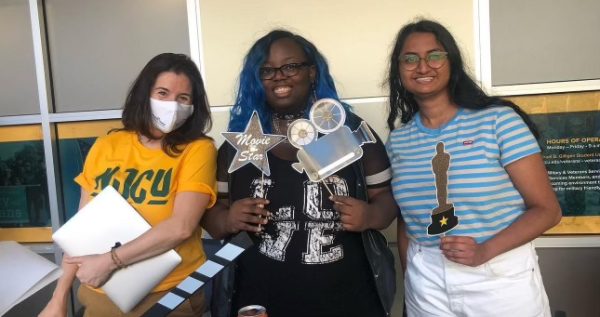
Isaael: Outside of your first article’s success, what kept you invested?
Tia: A promise. I had promised the old editor-in-chief that I wouldn’t let the gothic times die. And at some point, you know, that was a very hard promise to keep. Because it was so hard to find people. It was so hard to get to school to pay for the website. It was hard to just keep it going and even justify keeping it alive, especially as newspapers continue to be viewed as old-fashioned. You know, but since I made a promise and I don’t like going back on my word. I thought that the promise was enough to motivate me to continue doing this.
Isaael: What are you taking with you from the Gothic Times as you graduate and get your master’s?
Tia: I think I learned a lot. Not just like when it comes to managing things but work ethic, pushing through, and deciding what’s worth the effort. Because I decided the Gothic Times was worth the effort and I feel like once you make that kind of decision, you have to put a lot of work into backing it up. It was almost a solo project at some point. That’s something I learned.
Isaael: What is something you wish you knew before joining or editing a newspaper?
Tia: I guess just the importance of finding a team first. When I first tried rebuilding the Gothic Times, I thought that I could just run a newspaper. I was just trying to find people to write but even though I was finding writers, it was harder to do this without having someone who was also there to bounce ideas off of and just help me organize the meetings and everything. So, The first semester I tried running it, I tried running it by myself. So I wish I knew that it would have been better to find a partner instead of trying to do it by myself.
Isaael: What is your advice to those of us taking on the role of carrying the Gothic Times as you go to other things?
Tia: This might be very cliche advice, but just keep at it, you know, work hard. I think it’s worth it. You learn a lot from working with a team, from writing, just from being involved. Also, keep in mind the Gothic Times could be like a nice community where people could have fun and get along and feel they have a place to express themselves. The initiative of the Gothic Times isn’t often discussed, but it’s a place where students have the opportunity to let their voices be heard. Make sure your voice is heard.
Isaael: What do you think the Gothic Times’ impact is? What is impactful or iconic about the newspaper?
Tia: For me, it is seeing how people react to your work. Some of the articles that I’ve written over the past 4 years might have been on the controversial side but started conversations. When I wrote the article with Kendry about the meal plan, that started something where they changed the way they were cooking certain foods, or I had written about the CFO missing a meeting. He made a public apology after that. You’re starting a conversation and with the Gothic Times, I’ve learned you can make a change. Whether it’s within the school or outside of the school or something small like talking about anime that you thought was fun or large scale you can change things.
Though I have only known Tia for a few months for a hectic spring semester, it was clear her love and dedication to the Gothic Times. She is the blueprint for what I have appreciated most of the newspaper; it is fun, multidimensional, and packed with a whole lotta nerve to speak truths whether unspoken before or not.



